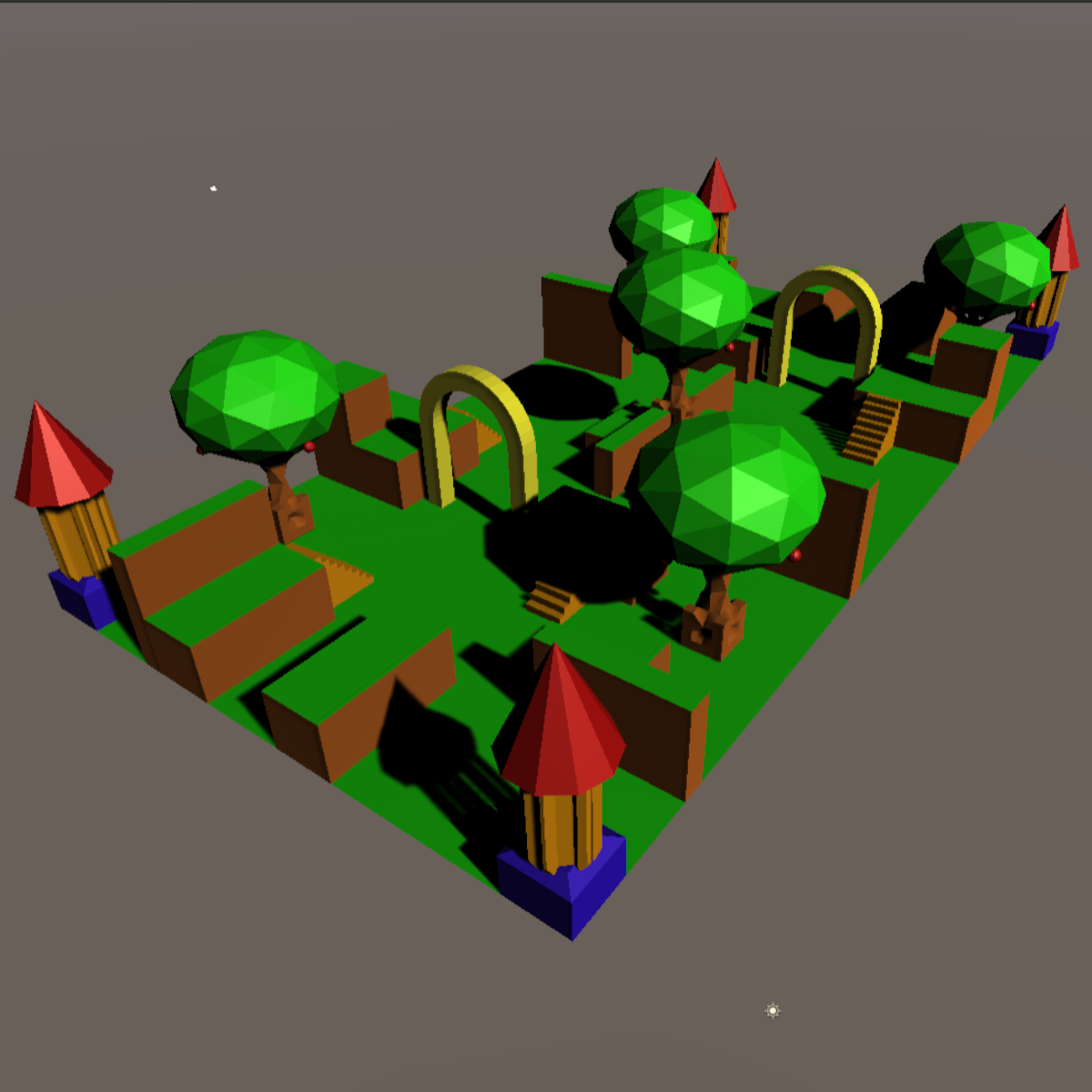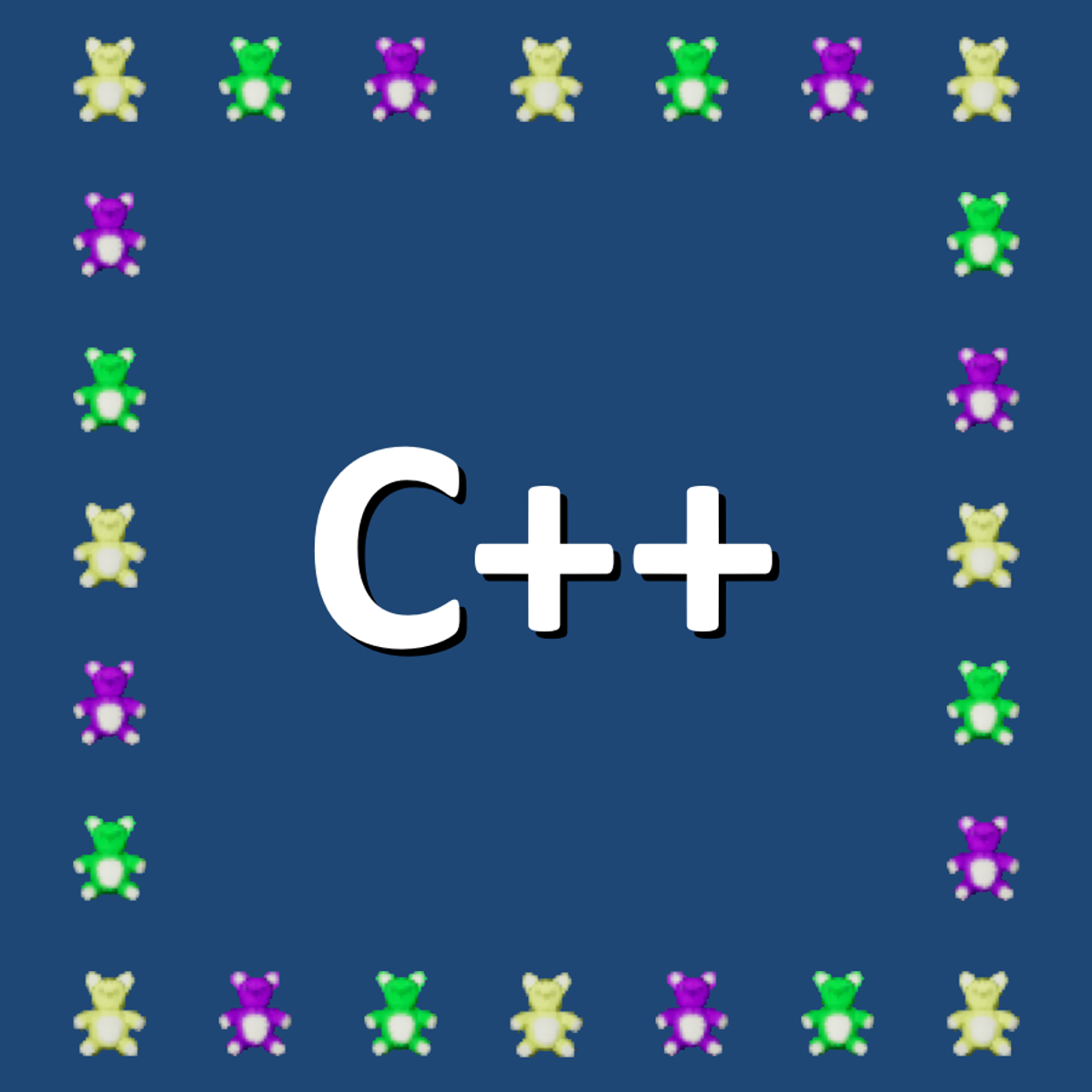Video Game Designer
A Comprehensive Guide to Becoming a Video Game Designer
Video game design is the creative process of imagining, planning, and defining all the elements of a video game. It involves crafting the rules, structure, story, characters, environments, and overall player experience. A video game designer is essentially the architect of the interactive world, responsible for ensuring the game is engaging, fun, and achieves its artistic and commercial goals.
Working as a video game designer can be incredibly rewarding. You get to blend creativity with technical understanding, shaping interactive experiences enjoyed by millions. Imagine seeing players explore worlds you helped create or mastering gameplay mechanics you meticulously balanced. It's a field where imagination meets implementation, offering constant intellectual and creative challenges.
Understanding the Role
Getting a clear picture of what a video game designer does is the first step. This section defines the role, distinguishes it from related positions, and outlines where designers typically work.
What is Video Game Design?
Video game design focuses on the 'why' and 'how' of a game's experience. Designers conceptualize the core gameplay loop – what the player does moment-to-moment – and define the systems that govern interaction. This includes everything from how a character jumps to the intricacies of an in-game economy or the progression of the narrative.
They create detailed design documents (GDDs) that outline the game's vision, mechanics, levels, story, interface, and more. These documents serve as blueprints for the entire development team. Design is not just about having ideas; it's about communicating those ideas clearly and ensuring they translate into a cohesive and enjoyable final product.
Ultimately, the goal is to craft an experience. Whether it's a fast-paced action game, a complex strategy simulation, or an emotional narrative adventure, the designer shapes how the player interacts with and feels about the game world.
Designer vs. Developer vs. Artist
It's common for newcomers to confuse the roles of game designer, game developer (programmer), and game artist. While they collaborate closely, their focuses differ significantly. Designers conceive the game's structure and rules; they focus on the player's experience and the 'what' and 'why'.
Game developers (often called programmers or engineers) translate the design specifications into functional code. They build the game engine's features, implement mechanics, create tools, and solve technical challenges. They focus on the 'how' from a technical standpoint, making the designed systems work.
Game artists create the visual elements – characters, environments, objects, interfaces, and effects. They determine the game's look and feel, working from concepts and art direction briefs. Their focus is on the visual presentation and aesthetic appeal.
While some overlap exists, especially in smaller teams (where someone might wear multiple hats), in larger studios, these roles are distinct specializations. A designer needs to understand the capabilities and limitations of code and art, but they don't typically write production code or create final art assets.
Where Do Video Game Designers Work?
Video game designers find employment across a diverse range of companies and industries. The most visible employers are large AAA studios, known for producing blockbuster titles with massive teams and budgets. Examples include companies like Electronic Arts, Ubisoft, Nintendo, Sony Interactive Entertainment, and Microsoft Xbox Game Studios.
Beyond AAA, there's a vibrant independent (indie) game development scene. Indie studios range from solo developers to small or medium-sized teams, often focusing on more niche genres or innovative concepts. Mobile gaming is another huge sector, employing designers to create games for smartphones and tablets, often focusing on casual gameplay and specific monetization models.
Designers also work in adjacent fields. Serious games companies create simulations for training, education, or healthcare. Technology companies might employ game designers for gamification projects, applying game mechanics to non-game applications to increase user engagement. Some designers also work freelance or start their own studios.
Roles and Responsibilities of a Video Game Designer
The day-to-day work of a video game designer is varied and depends on the project stage, team size, and specific design role. However, some core responsibilities are common across the field.
Core Design Tasks
A primary task is designing gameplay mechanics: the rules and systems players interact with. This could involve defining combat systems, character abilities, puzzle logic, or vehicle handling. Designers must ensure mechanics are intuitive, balanced, and support the overall game vision.
Level design involves creating the game's environments and spaces where gameplay occurs. This includes map layout, placing objects and enemies, scripting events, and pacing the player's progression through the space. Good level design guides the player, provides interesting challenges, and reinforces the game's mechanics and narrative.
Narrative integration is another key area. Even in games without complex plots, designers often shape how the story is told through gameplay, environment design, and character interactions. In story-driven games, narrative designers specifically focus on plot, character development, dialogue, and integrating narrative elements seamlessly with gameplay.
User Interface (UI) and User Experience (UX) design are also crucial. Designers work on how information is presented to the player (menus, HUDs) and ensure the overall interaction is smooth, intuitive, and frustration-free.
These books offer deep dives into the principles behind crafting compelling game experiences, covering mechanics, rules, and the player's journey.
Collaboration is Key
Video game development is a highly collaborative process. Designers rarely work in isolation. They constantly communicate and iterate with programmers to implement and refine game mechanics, ensuring the technical execution matches the design intent.
Close collaboration with artists is essential to align the game's visuals with its design goals. This includes providing feedback on assets, discussing how environments should support gameplay, and ensuring the art style serves the player experience.
Designers also work with producers to manage scope and schedules, with audio designers to integrate sound and music effectively, and crucially, with Quality Assurance (QA) testers to identify bugs and usability issues related to the design.
Effective communication, the ability to give and receive constructive feedback, and understanding the constraints and needs of other disciplines are vital for a designer's success.
Prototyping and Playtesting
Game design is iterative. Initial ideas rarely survive unchanged to the final product. Designers create prototypes – simplified, playable versions of game mechanics or systems – to test concepts quickly. These prototypes can range from paper mockups to simple digital versions built in a game engine.
Playtesting is the process of having others play the game (or prototype) to gather feedback. This is crucial for identifying what's fun, what's confusing, where players get stuck, and whether the intended experience is being achieved. Designers observe play sessions and analyze feedback to make informed decisions about revisions.
This cycle of design, prototype, playtest, and iterate continues throughout development. It helps refine mechanics, balance difficulty, improve usability, and ensure the final game is engaging and polished. Embracing feedback and being willing to change or discard ideas is a fundamental part of the design process.
These courses introduce prototyping concepts, often using specific game engines which are central to modern development workflows.
Essential Skills for Video Game Designers
Aspiring video game designers need a blend of technical proficiency, creative thinking, and strong interpersonal abilities. This section breaks down the key skills required.
Technical Foundations
While deep coding isn't always required, familiarity with game engines is essential. Engines like Unity and Unreal Engine are industry standards, providing tools for building levels, implementing logic, and managing assets. Understanding their capabilities and workflows is crucial for effective design.
Basic scripting knowledge is highly advantageous. Many design roles involve using visual scripting tools (like Unreal's Blueprints) or writing simple scripts (in languages like C# for Unity or sometimes Python) to prototype mechanics or control game events. This allows designers to implement and test ideas directly.
Familiarity with version control systems (like Git), project management software (like Jira or Trello), and documentation tools (like Confluence or Google Docs) is also standard in professional environments.
Online courses provide excellent avenues for learning specific game engines and foundational programming concepts relevant to game development.
Creative and Analytical Abilities
Creativity is paramount. Designers need to generate original ideas for game concepts, mechanics, narratives, and worlds. This involves brainstorming, exploring different genres, and thinking outside the box to create unique player experiences.
Strong storytelling and world-building skills are important, even for games light on plot. Designers need to create context, motivation, and atmosphere that immerse the player. Understanding narrative structure, character archetypes, and environmental storytelling techniques is valuable.
Analytical thinking is just as critical as creativity. Designers must be able to break down complex systems, understand player psychology, analyze feedback objectively, and make logical decisions based on data and observation. Balancing game mechanics, tuning difficulty curves, and designing sustainable economies require rigorous analysis.
A grasp of visual design principles (composition, color theory, form) helps designers communicate effectively with artists and create more aesthetically pleasing and intuitive interfaces and levels, even if they aren't creating the art themselves.
Courses focusing on game writing, narrative, and character development can build these essential creative skills.
Soft Skills and Communication
Game development is a team sport, making soft skills indispensable. Excellent communication abilities – both written and verbal – are necessary to articulate design ideas clearly, write comprehensive documentation, and provide constructive feedback.
Teamwork and collaboration are fundamental. Designers must work effectively with diverse personalities across different disciplines, respecting their expertise and contributing positively to the team environment. Conflict resolution and negotiation skills can also be important.
Strong problem-solving skills are used daily. Designers constantly encounter unexpected challenges, technical limitations, or feedback that requires creative solutions. Adaptability and resilience are key, as designs often change throughout development.
Project management awareness helps designers understand deadlines, scope constraints, and resource limitations. Even if not in a lead role, understanding the production pipeline helps designers make realistic and efficient choices.
Formal Education Pathways
While passion and a strong portfolio are paramount, formal education can provide a structured foundation for a career in video game design. Various academic routes exist.
Relevant Degree Programs
Many universities and colleges offer specialized degrees in Game Design, Interactive Media, or Game Development. These programs typically cover game theory, level design, narrative design, prototyping, game engines, and project management, often including portfolio development courses.
A Computer Science degree with a focus or minor in game development is another common path. This route provides strong technical programming skills, which are highly valuable, especially for systems design or technical design roles. Graduates often have a solid understanding of algorithms, data structures, and software engineering principles applicable to game development.
Degrees in related creative fields like Animation, Fine Arts, Film, or Creative Writing can also be relevant entry points, particularly for roles leaning towards visual or narrative aspects. However, supplementing these degrees with game engine proficiency and design fundamentals is usually necessary.
The Importance of a Portfolio
Regardless of educational background, a strong portfolio is the single most important asset for an aspiring game designer. It's tangible proof of your skills, creativity, and ability to execute ideas. Your portfolio should showcase practical design work.
Include finished projects, prototypes, design documents, level layouts, or analyses of existing games. Focus on quality over quantity. Showcase projects that demonstrate specific skills relevant to the jobs you're applying for (e.g., level design examples for a level designer role).
Building a portfolio often involves personal projects, participating in game jams (timed game creation events), contributing to indie projects, or creating mods for existing games. Document your process, explain your design choices, and highlight your specific contributions if working in a team.
Online courses often include projects that can form the basis of portfolio pieces. OpenCourser's Design and Programming sections list many courses that can help build these skills and projects.
This course specifically targets creating a competitive portfolio for game design roles.
University vs. Specialized Schools vs. Online Learning
Traditional universities offer broad educations alongside game design specializations, often conferring Bachelor's or Master's degrees. They provide networking opportunities, access to diverse resources, and a well-rounded academic experience.
Specialized game design schools or colleges focus intensely on industry-specific skills and portfolio development, often with shorter program lengths (diplomas or certificates). They may have strong industry connections but can be more expensive and offer a narrower academic focus.
Online courses and bootcamps offer flexibility, affordability, and access to specialized knowledge often taught by industry professionals. They are excellent for supplementing formal education, career transitioning, or learning specific tools like Unity or Unreal Engine. While they may lack the structured environment or networking of physical schools, platforms like OpenCourser make finding high-quality options easier than ever.
Many successful designers combine elements from these paths, perhaps using online courses to learn specific software alongside a broader university degree or using them to build a portfolio for a career change. The key is demonstrating practical design ability.
These introductory courses can provide a solid foundation, regardless of your chosen educational path.
Career Progression for Video Game Designers
A career in video game design offers various paths for growth and specialization. Understanding the typical trajectory can help you plan your long-term goals.
Starting Your Career
Most designers begin in entry-level or junior positions. Common starting roles include Junior Game Designer, Associate Level Designer, or sometimes QA Tester. QA roles, while focused on testing, provide invaluable exposure to the development process, different game systems, and bug analysis, often serving as a stepping stone into design.
Entry-level tasks typically involve supporting senior designers, implementing smaller features, creating specific level sections, tuning basic parameters, or documenting systems. The focus is on learning the studio's pipeline, tools, and contributing reliably under supervision.
Building a strong portfolio demonstrating foundational skills (prototyping, basic level construction, clear documentation) is crucial for landing these first roles. Internships are also excellent ways to gain initial experience.
This book provides advice specifically for those starting out.
Mid-Career Specialization
After gaining a few years of experience, designers often specialize. Common specializations include: Systems Design (focusing on core mechanics, combat, economy), Level Design (crafting environments and gameplay spaces), Narrative Design (story, characters, dialogue), or UX/UI Design (interface, player flow, accessibility).
Other specializations might emerge based on genre or platform, such as Combat Designer, Multiplayer Designer, Mobile Game Designer, or Monetization Designer. Mid-career designers take ownership of significant features or sections of the game, mentor junior staff, and contribute more strategically to the project's direction.
This stage involves deepening expertise in a chosen area, developing a stronger understanding of player psychology and market trends, and refining communication and leadership skills.
Leadership and Advanced Roles
Experienced designers can progress into leadership positions. A Lead Designer oversees a team of designers, guiding the design vision for a specific feature set or the entire project. They are responsible for ensuring design consistency, mentoring the team, and collaborating closely with leads from other disciplines.
The Creative Director typically holds the highest creative authority on a project or within a studio. They define the overall vision, tone, and player experience, making key decisions about gameplay, narrative, and art direction. This role requires extensive experience, strong leadership, and a deep understanding of both creative and commercial aspects.
Some senior designers may choose to become studio founders, starting their own independent development companies. Others might transition into related roles like Game Producer, managing development schedules and resources, or Product Manager, focusing on the game's market strategy and business performance.
Industry Trends Impacting Video Game Designers
The video game industry is constantly evolving due to technological advancements and shifting market dynamics. Designers need to stay aware of these trends.
Emerging Technologies
Virtual Reality (VR) and Augmented Reality (AR) continue to mature, presenting unique design challenges and opportunities. Designing for immersion, presence, and intuitive interaction in VR/AR requires new approaches compared to traditional screen-based games.
Artificial Intelligence (AI) is increasingly used in game development. Generative AI tools might assist with content creation (e.g., textures, basic level layouts, dialogue variations), while advanced AI techniques enhance NPC behavior, creating more believable and dynamic game worlds. Designers need to understand how to leverage these tools effectively and ethically.
Cloud gaming platforms (like Xbox Cloud Gaming or GeForce NOW) impact how games are accessed and potentially designed, enabling experiences on lower-spec devices but requiring consideration of latency and streaming constraints.
These courses delve into the specifics of developing for VR, a rapidly growing area demanding specialized design skills.
Market Shifts and Business Models
The rise of independent developers continues to diversify the market, bringing fresh ideas and niche genres to players. Platforms like Steam, Itch.io, and mobile app stores have lowered the barrier to entry for distribution.
The 'Games as a Service' (GaaS) model, where games receive ongoing content updates and monetization post-launch (e.g., Fortnite, Destiny 2), requires designers focused on long-term engagement, retention mechanics, and event design.
Mobile gaming remains a dominant force globally, demanding expertise in designing for touch interfaces, shorter play sessions, and various monetization strategies (free-to-play, ads, in-app purchases).
Subscription services (like Xbox Game Pass or PlayStation Plus Extra) influence discovery and potentially incentivize different types of game design, perhaps focusing more on engagement than immediate sales.
Globalization and Remote Work
Game development is a global industry, with major studios and talent hubs distributed across North America, Europe, and Asia. Large projects often involve collaboration between teams in different countries and time zones.
The trend towards remote and hybrid work models has accelerated, particularly after 2020. This offers designers more flexibility in location but also requires strong self-discipline, excellent remote communication skills, and proficiency with collaborative online tools.
Understanding cultural nuances becomes increasingly important when designing games for a global audience, impacting everything from narrative themes and character design to UI localization and marketing considerations.
Financial Considerations and Job Market
Understanding the financial realities and job market conditions is crucial when considering a career as a video game designer.
Salary Expectations
Salaries for video game designers vary significantly based on experience level, specialization, studio size and type (AAA vs. indie), and geographic location. Entry-level or junior designer salaries are typically modest but grow with experience.
Mid-level and senior designers command higher salaries, particularly those with specialized skills in high demand (e.g., systems design, UX design). Lead designers and creative directors are among the highest earners in the design track. Reliable, up-to-date salary data can often be found in industry surveys or reports from recruitment firms like Robert Half, although BLS data for "Multimedia Artists and Animators" or "Software Developers" may provide broader context.
It's important to research salary ranges specific to your region and target role. Cost of living differences mean a salary in a major tech hub like San Francisco or Seattle will differ greatly from one in a smaller city.
Freelance vs. Studio Employment
Most video game designers work full-time for studios, offering benefits like health insurance, retirement plans, and team camaraderie. Studio employment provides stability and the opportunity to work on larger, longer-term projects.
However, freelance or contract work is also an option, particularly for experienced designers with specialized skills or strong networks. Freelancing offers flexibility in choosing projects and setting hours but requires self-management, handling taxes and insurance independently, and constantly seeking new contracts. Income can be less predictable than a salaried position.
Some designers may transition between freelance and studio roles throughout their careers depending on personal circumstances and market opportunities.
Job Market Realities
The video game industry is dynamic but can also be volatile. Competition for entry-level design positions is often fierce, underscoring the need for a standout portfolio and strong networking.
Studio closures, project cancellations, and layoffs are unfortunately not uncommon in the industry. This cyclical nature means job security can fluctuate. Building a strong professional network, continuously developing skills, and maintaining an updated portfolio are crucial for navigating potential career transitions.
Despite these challenges, the global games market continues to grow, generating demand for skilled designers across various platforms and genres. Passion, persistence, and a proactive approach to skill development and networking are key to building a sustainable career.
This book explores the business side, including market dynamics.
Ethical Challenges in Video Game Design
Designing interactive experiences comes with unique ethical responsibilities. Video game designers must consider the potential impact of their work on players and society.
Player Wellness and Addiction
Designers aim to create engaging and rewarding gameplay loops. However, there's a fine line between engaging design and potentially addictive mechanics, particularly concerning reward schedules, progression systems, and social pressures within games.
Ethical design involves considering player well-being, avoiding overly manipulative techniques ("dark patterns"), and being mindful of screen time and potential negative impacts on players' lives. This includes designing systems that respect player time and autonomy.
Representation and Cultural Sensitivity
Video games reach global audiences, making representation and cultural sensitivity critical. Designers have a role in creating diverse characters and worlds that avoid harmful stereotypes related to race, gender, sexuality, religion, disability, or culture.
This involves researching different cultures respectfully, consulting with diverse voices during development, and striving for authentic and nuanced portrayals. Poor representation can perpetuate biases and alienate players.
Monetization Models
The design of monetization systems, especially in free-to-play or live service games, presents significant ethical challenges. Practices like loot boxes (randomized rewards purchased with real or in-game currency) have faced scrutiny and regulation in some regions due to similarities with gambling.
Designers involved in monetization must balance commercial goals with fair value for players. Ethical considerations include transparency about odds, avoiding pay-to-win mechanics that disadvantage non-spending players, and ensuring monetization doesn't feel overly aggressive or exploitative.
Historical Evolution of Video Game Design
Understanding the history of game design provides context for current practices and highlights how the craft has evolved alongside technology and culture.
From Arcades to Open Worlds
Early video games (like Pong, Space Invaders) in the 1970s focused on simple, core mechanics dictated by severe hardware limitations. The arcade era of the early 1980s saw increased complexity and genre diversification (Pac-Man, Donkey Kong).
Home consoles (Atari, NES) brought games into living rooms, fostering longer play sessions and the development of genres like platformers (Super Mario Bros.) and RPGs (The Legend of Zelda). The 16-bit era refined these genres and saw advancements in graphics and sound.
The transition to 3D graphics in the mid-1990s (PlayStation, N64) revolutionized design, opening possibilities for exploration, complex environments, and new genres. PC gaming pushed boundaries in strategy, simulation, and online multiplayer. Modern games often feature vast open worlds, intricate systems, and sophisticated narratives, reflecting decades of design evolution.
Influential Design Philosophies
Different designers and studios have championed distinct approaches. Nintendo, for example, often emphasizes intuitive controls, player discovery, and a "fun first" philosophy (often associated with Shigeru Miyamoto). Designers like Will Wright (SimCity, The Sims) pioneered simulation games focused on player agency and emergent systems.
The rise of immersive sims (Deus Ex, BioShock) stressed player choice and environments that react realistically. Indie developers often push experimental mechanics and narrative approaches. Studying these different philosophies helps designers build their own approach to creating compelling experiences.
Impact of Technology
Hardware advancements have consistently driven design possibilities. Increased processing power allowed for more complex AI and physics. Larger storage media enabled bigger worlds and richer narratives. Online connectivity transformed gaming with multiplayer experiences and persistent worlds.
Modern tools like sophisticated game engines (Unity, Unreal) democratize development, allowing smaller teams to create polished experiences that were once only possible for large studios. Mobile technology created entirely new platforms and design paradigms. Future technologies like advanced AI, cloud streaming, and VR/AR will continue to shape the future of game design.
Getting Started with Online Learning
Online courses offer a flexible and accessible pathway into video game design, whether you're starting from scratch, supplementing formal education, or transitioning careers.
Why Choose Online Courses?
Online learning provides significant advantages. You can study at your own pace, fitting learning around existing commitments. Courses are often more affordable than traditional degree programs or specialized schools. You can access instruction from industry professionals and universities worldwide, regardless of your location.
Online platforms offer courses on highly specific topics, allowing you to target the exact skills you need, from mastering a particular game engine feature to learning narrative design techniques or VR development principles. This focused approach can accelerate skill acquisition.
Many online courses are project-based, helping you build tangible portfolio pieces while you learn. Certificates of completion, while not a substitute for a portfolio, can demonstrate commitment and specific competencies to potential employers.
Finding Courses with OpenCourser
Navigating the vast landscape of online courses can be daunting. OpenCourser simplifies this by aggregating thousands of courses and books into a single searchable platform. You can easily search for specific skills ("Unity C#", "Level Design Unreal Engine") or browse categories relevant to game design, such as Design, Programming, or Arts & Culture.
OpenCourser provides detailed information including summaries, syllabi (when available), instructor details, and reviews, helping you evaluate course quality. Features like "Save to list" allow you to curate potential learning paths (manage your list here), while the "Similar Courses" section helps discover alternatives.
Consider starting with foundational courses in game design principles before diving into specific engine training.
These courses provide broad introductions or cover fundamental concepts useful for beginners.
Building a Learning Path and Portfolio
Structure your online learning strategically. Start with foundational game design theory and principles. Then, gain proficiency in at least one major game engine (Unity or Unreal). Complement this with basic scripting or visual scripting skills relevant to your chosen engine.
As you learn, actively apply your knowledge by working on personal projects. Participate in online game jams – they are excellent motivators and provide finished (if small) portfolio pieces quickly. Recreate mechanics from games you admire to deepen your understanding.
Document your projects thoroughly for your portfolio. Explain your design goals, the challenges you faced, the solutions you implemented, and what you learned. Your portfolio should demonstrate not just technical skill, but design thinking and problem-solving ability.
For guidance on structuring your learning and making the most of online resources, explore the OpenCourser Learner's Guide.
Here are courses focused on specific engines or skills often needed for portfolio projects.
Frequently Asked Questions
Here are answers to some common questions about pursuing a career in video game design.
Is a degree mandatory for entry-level positions?
No, a specific degree is not strictly mandatory, but it can be helpful. What matters most to employers is a strong portfolio demonstrating practical design skills, creativity, and understanding of game development principles. Relevant degrees (Game Design, Computer Science) provide structured learning and credibility, but many successful designers are self-taught or come from unrelated fields, proving their abilities through their portfolio and projects.
How competitive is the job market for new designers?
The job market for entry-level video game designers is highly competitive. Many people are passionate about games and aspire to design them. Standing out requires a compelling portfolio showcasing polished projects, clear design thinking, proficiency with industry-standard tools (like Unity or Unreal), and strong communication skills. Networking and internships significantly improve your chances.
What percentage of a designer's work involves coding?
This varies greatly depending on the role and studio. Some designers, particularly Technical Designers or Systems Designers in smaller teams, may code or script frequently. Others, like Narrative Designers or pure Level Designers in large studios, might do very little direct coding. However, nearly all designers benefit from understanding programming concepts and being able to use visual scripting tools to prototype and implement ideas.
Can designers transition into adjacent tech roles?
Yes, the skills developed as a game designer are transferable. Understanding user experience, systems thinking, project collaboration, and technical pipelines are valuable in many tech roles. Common transitions include roles like Producer, Product Manager, UX Designer (for general software), or Technical Writer. The specific path depends on the designer's individual skills and interests.
How does indie development differ from AAA studio work?
AAA studios typically have large teams, massive budgets, specialized roles, and structured pipelines, often working on established franchises. Indie development involves smaller teams (sometimes just one person), tighter budgets, more creative freedom (and risk), and roles that often require wearing multiple hats (e.g., designing, coding, marketing). Both offer unique challenges and rewards.
What are common burnout factors in this career?
Burnout can stem from several factors. "Crunch culture" – extended periods of intense overtime near project deadlines – is a notorious issue, though many studios are actively working to reduce it. Creative pressure, tight deadlines, project cancellations after significant effort, dealing with negative player feedback, and the repetitive nature of some tasks (like extensive tuning or bug fixing) can also contribute. Maintaining work-life balance and passion for the craft is crucial.
Conclusion
Embarking on a career as a video game designer is a journey fueled by passion, creativity, and technical acumen. It involves shaping entire worlds and experiences, collaborating with talented teams, and navigating the complexities of interactive entertainment. While the path requires dedication, continuous learning, and resilience in a competitive and sometimes volatile industry, the reward of bringing imaginative ideas to life and sharing them with players can be immense. Whether through formal education, online learning, or self-directed projects, building a strong portfolio and honing both creative and technical skills are the keys to turning this aspiration into a reality. Remember to be persistent, stay curious, and most importantly, keep playing and analyzing games – it's often the best education there is.






















